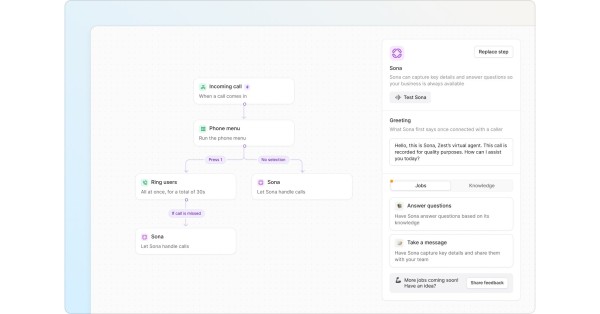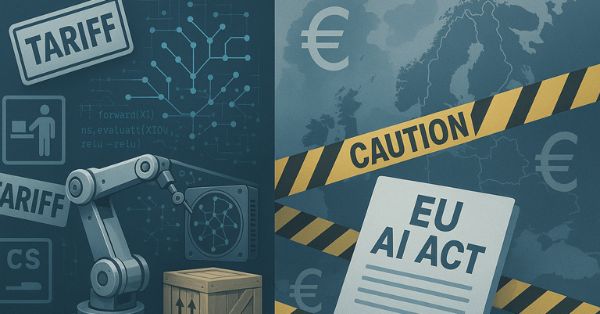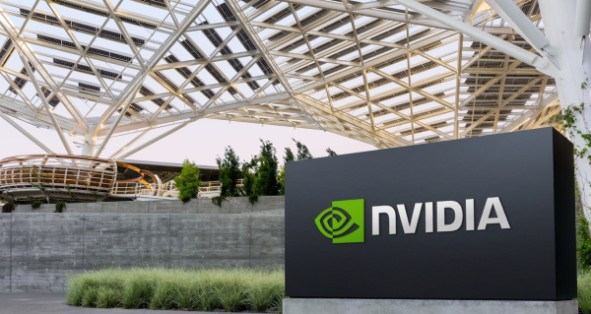AI Shifts from Hype to Business Value at IBM THINK 2025
At its THINK 2025 conference, IBM introduced a wave of innovations aimed at helping enterprises transition from AI pilots to real, scalable AI deployments. With AI investment growth expected to double over the next two years, IBM is focusing on simplifying integration, enabling smarter automation, and turning enterprise data into a core driver of AI performance.
Business leaders face the challenge of fragmented IT environments and disconnected AI efforts. To address this, IBM is launching new hybrid cloud capabilities, intelligent agents, and infrastructure optimizations, all designed to support production-ready GenAI at scale.
IBM Accelerates GenAI with Fast-Build AI Agents in watsonx Orchestrate
IBM’s updated watsonx Orchestrate platform now includes what it calls the industry’s most comprehensive set of AI agent features. The platform allows enterprises to build AI agents in under five minutes using tools that support everything from no-code to pro-code environments.
Key highlights include:
- Domain-specific agents for HR, sales, and procurement tasks
- Utility agents for basic operations like web research
- Pre-built integrations with 80+ enterprise platforms, including Salesforce, ServiceNow, Microsoft, and AWS
- Agent orchestration and observability to manage workflows, governance, and performance
A newly introduced Agent Catalog will provide over 150 plug-and-play agents built by IBM and partners such as Oracle, MasterCard, Symplistic.ai, and Salesforce’s Agentforce.
Boosting ROI with Hybrid Integration Automation
Integration complexity remains a barrier to AI deployment. IBM’s new webMethods Hybrid Integration aims to simplify this by automating how data, apps, APIs, and events connect across on-prem and cloud environments.
A Forrester Total Economic Impact (TEI) study showed that organizations using webMethods realized:
- 176% ROI over three years
- 40% less downtime
- Up to 67% time savings on project execution
By leveraging agent-based automation, IBM allows businesses to modernize integrations without rearchitecting legacy systems. Partnerships with tools like HashiCorp Terraform and Vault further streamline infrastructure provisioning and secrets management.
IBM Accelerates GenAI Accuracy Using Watsonx.data for Unstructured Content
One of the biggest untapped AI resources is unstructured enterprise data—from emails to contracts to slide decks. IBM is evolving watsonx.data into a modular platform that supports data lakehouse architectures and data fabric capabilities.
According to IBM’s internal testing, the new watsonx.data can boost AI agent accuracy by up to 40% over traditional Retrieval-Augmented Generation (RAG) approaches.
The platform includes:
- Watsonx.data integration: A tool to orchestrate data pipelines across formats
- Watsonx.data intelligence: AI-powered tools that extract insights from unstructured content
- Content-Aware Storage (CAS): A service that makes unstructured data AI-ready in real time
IBM is also acquiring DataStax, expanding its capabilities in vector search and real-time data processing for generative AI workloads.
IBM LinuxONE 5 Powers Scalable, Secure AI Inference
On the infrastructure side, IBM launched LinuxONE 5, a high-performance platform built to support up to 450 billion inference operations per day. Designed for secure, AI-intensive applications, LinuxONE 5 includes:
- Integrated AI accelerators, including IBM Telum II and the upcoming IBM Spyre PCIe card
- Confidential containers for enhanced data protection
- Quantum-safe encryption to defend against emerging threats
Compared to traditional x86 environments, running workloads on LinuxONE 5 can reduce total cost of ownership by up to 44% over five years, according to IBM testing.
IBM Accelerates GenAI Through Expanded AI Hardware Partnerships
IBM is expanding its hardware partnerships with industry leaders such as:
- AMD
- Intel
- NVIDIA
- CoreWeave
These collaborations aim to enhance GPU, accelerator, and storage capabilities for compute-intensive and AI-driven applications.
Real-World Results from IBM Clients
Several enterprise clients are already leveraging IBM’s AI and hybrid cloud stack:
- Banco de Brasil uses IBM Z and Red Hat OpenShift to boost efficiency and ensure business continuity.
- BNP Paribas partners with IBM Cloud to build secure, scalable infrastructure for generative AI.
- Cencora is digitizing pharmaceutical logistics with AI and hybrid cloud tools.
- Honda is shaping responsible AI governance frameworks with IBM Consulting.
- PepsiCo has deployed a generative AI platform to accelerate insights across its global supply chain.
- Lockheed Martin collaborates with IBM to scale AI for defense innovation and internal productivity.
The Path Forward: From Experimentation to Execution
According to IBM Chairman and CEO Arvind Krishna, “The era of AI experimentation is over.” The focus now is on operational AI—solutions that integrate seamlessly into existing systems and deliver measurable results. By combining hybrid cloud, scalable infrastructure, and modular AI tools, IBM is positioning itself as a strategic partner for enterprises looking to transition from AI pilots to production.
For more information, visit the IBM Newsroom.



























